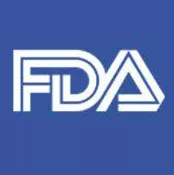FDA asks for input on sesame allergies and food labeling

The U.S. Food and Drug Administration is issuing a request for information on the prevalence and severity of sesame allergies in the United States to inform possible regulatory action that would require sesame to be labeled as an allergen on packaged foods. Currently, sesame is not required to be disclosed as an allergen, and in some circumstances, sesame may be exempt from being listed by name in the ingredient statement on food packages.
The Federal Food, Drug, and Cosmetic Act (FD&C Act) requires that a food containing a major food allergen declare the source of the allergen. The Act defines a major food allergen as one of the following: milk, eggs, fish (e.g., bass, flounder, or cod), crustacean shellfish (e.g., crab, lobster, or shrimp), tree nuts (e.g., almonds, pecans, or walnuts), wheat, peanuts and soybeans. In addition to requiring the disclosure of these eight major food allergens, the FD&C Act gives the FDA the authority to issue regulations requiring the disclosure of spices, flavorings, colorings and incidental additives that are, or contain, allergens other than the eight major food allergens, and FDA is not restricted from requiring labeling regarding other food allergens.
In the case of food allergens other than the eight major food allergens, it can be difficult, in some cases, for consumers who have allergies to avoid them because they may not always be specifically listed in the ingredient statement or identified by allergen labeling. An ingredient that contains a food that is not a major food allergen may only be listed by its common or usual name and not always declare the name of the food source. In the case of an ingredient list declaring “tahini,” the source of the ingredient, sesame, is not included as part of the name listed in the ingredient statement. In addition, spice mixes, flavors, and colors used as ingredients can be labeled generically without stating individual ingredients. Incidental additives derived from foods that are not major food allergens that are present in food at insignificant levels and do not have any technical or functional effect in that food can be exempt from labeling requirements. An example is vegetable oil transferred from food production equipment.
As part of the RFI, the FDA is also asking for input on the prevalence of sesame-containing foods sold in the U.S. that are not required by law to disclose sesame in the ingredient list on food packages. The agency also wants to know about possible costs of any future regulatory action FDA might take regarding sesame disclosure for foods.
In addition to issuing this request for information, the FDA will continue to monitor the scientific literature and consumer complaint databases to identify emerging food allergen concerns and continues to evaluate whether other food allergens pose a risk to U.S. consumers, thus warranting possible agency action.
The comment period opens October 30, 2018 and will remain open for 60 days.
To submit electronic comments, go to https://www.regulations.gov and search for Docket No. FDA-2018-N-3809.
Looking for quick answers on food safety topics?
Try Ask FSM, our new smart AI search tool.
Ask FSM →
Written comments must be sent to:
Docket Management Staff (HFA-305)
Food and Drug Administration
5630 Fishers Lane, Room 1061
Rockville, MD 20852
All submissions received must include the Docket No. FDA-2018-N-3809.
Further instructions can be found in the Request for Information.








